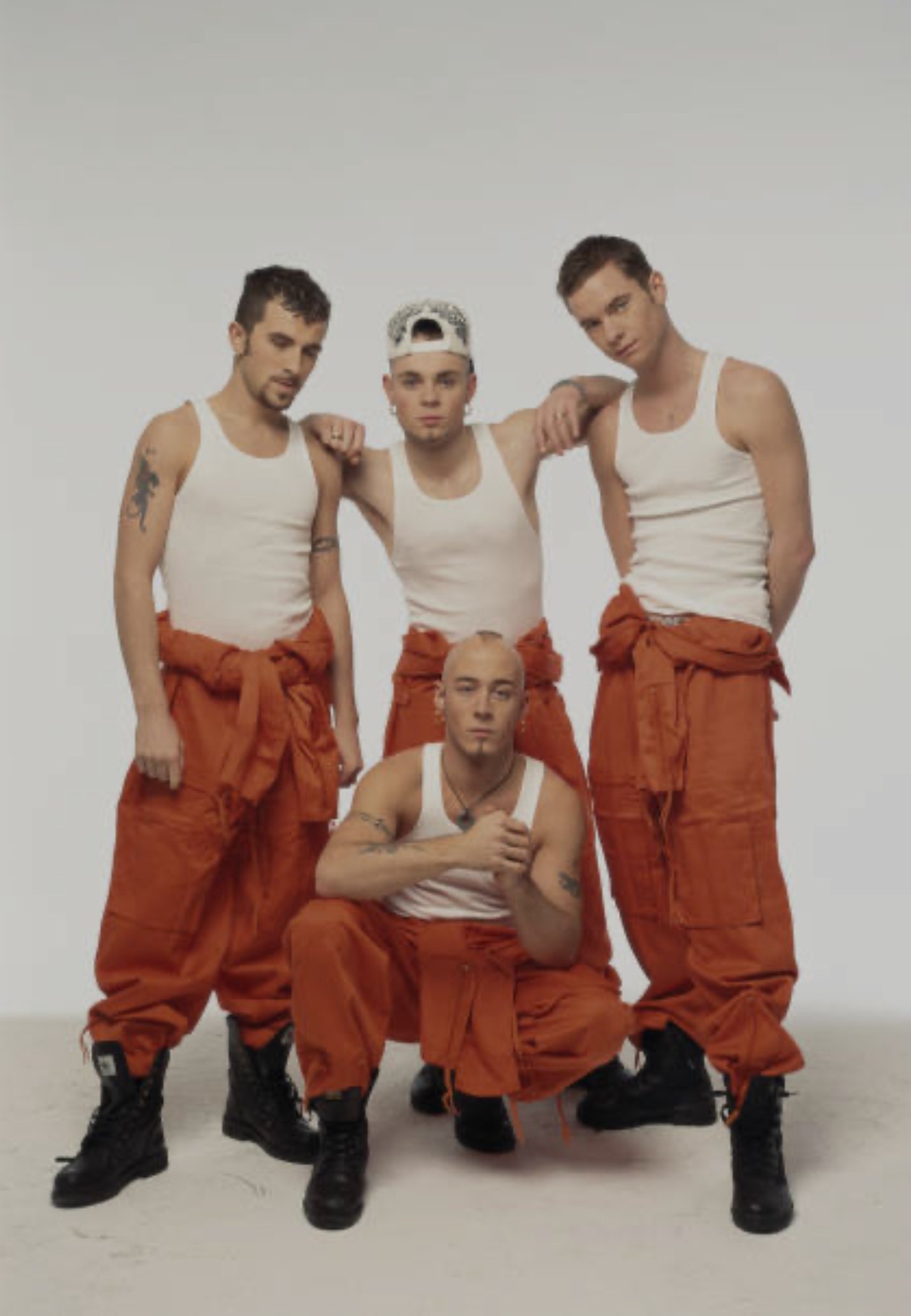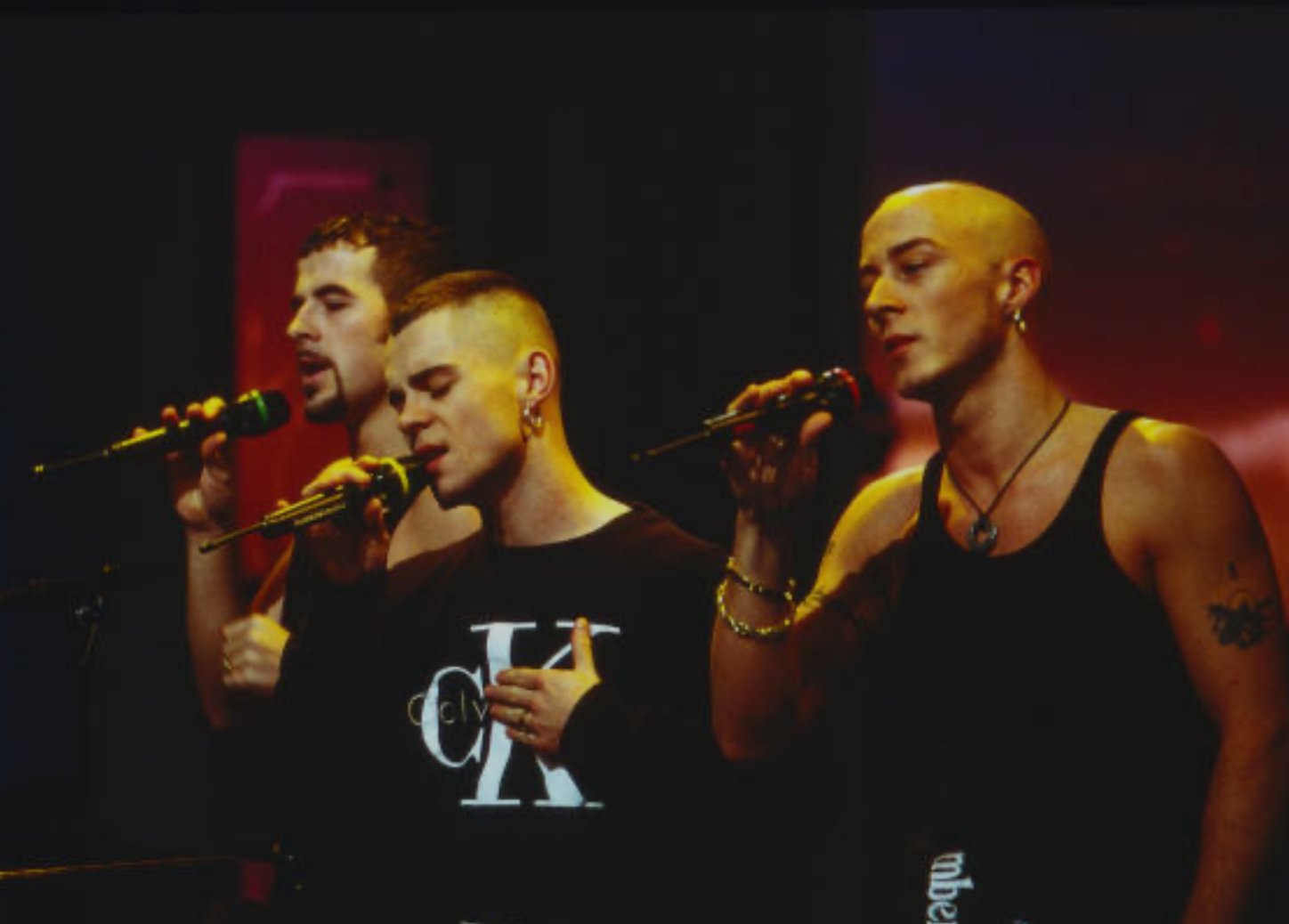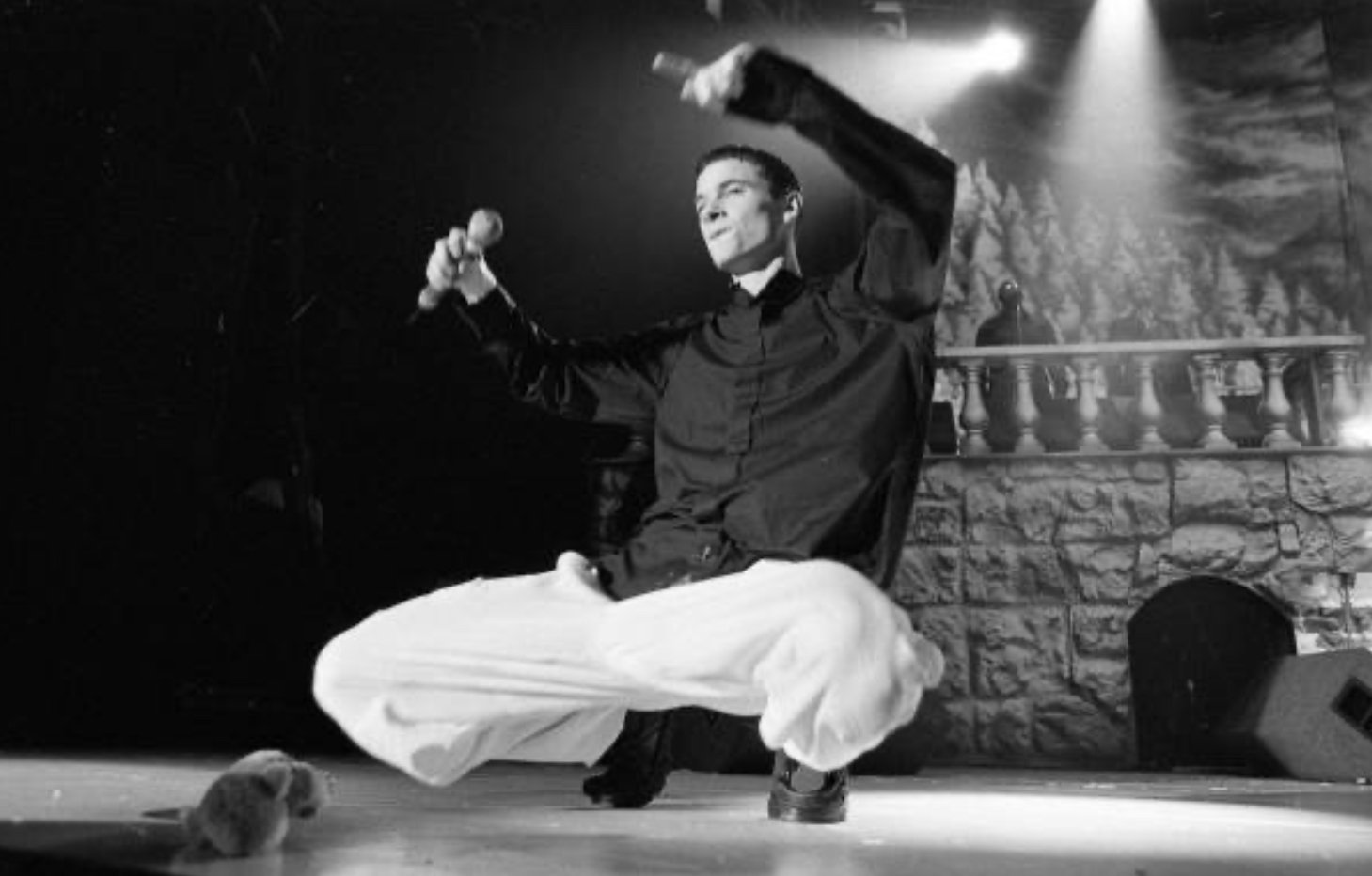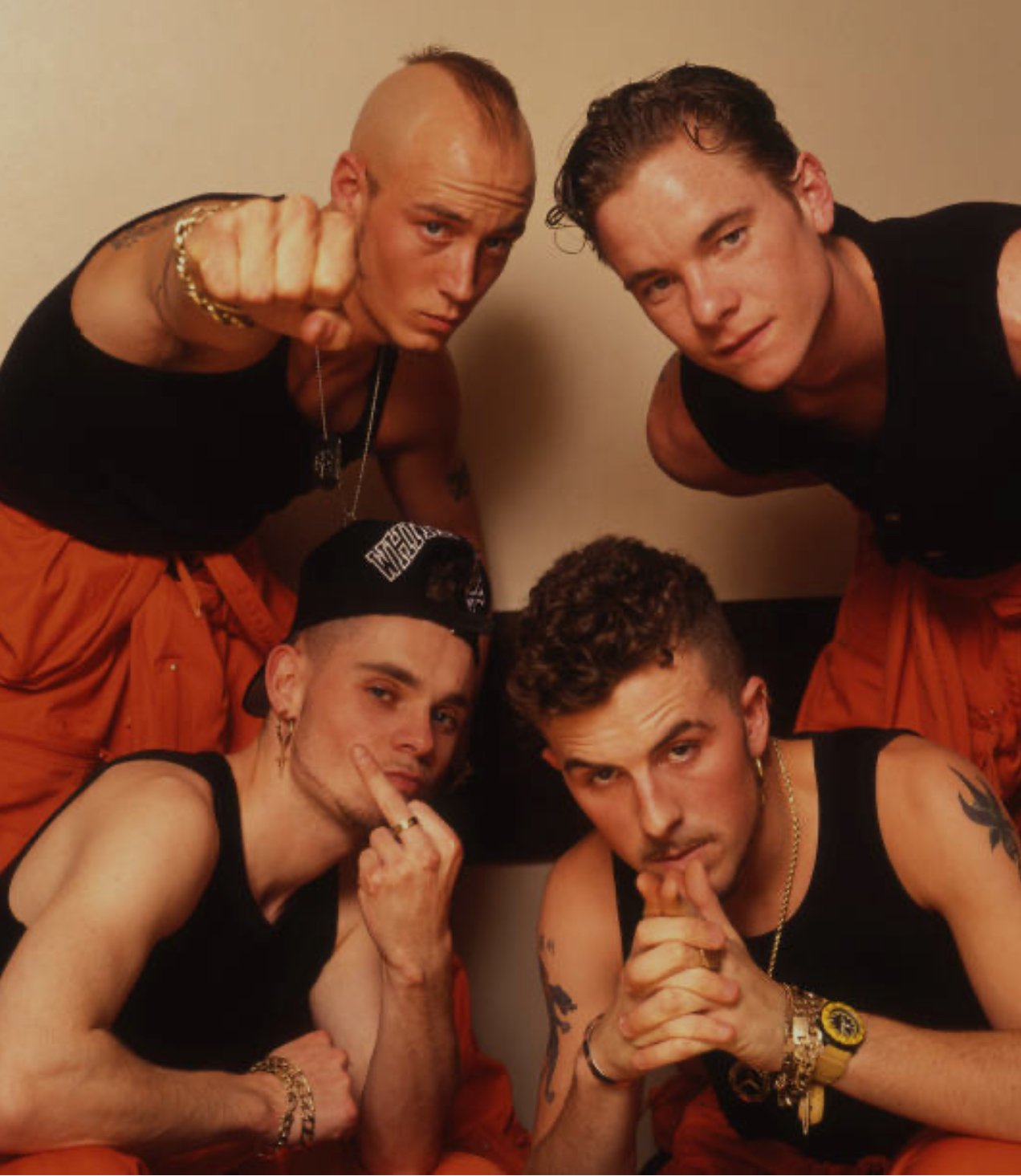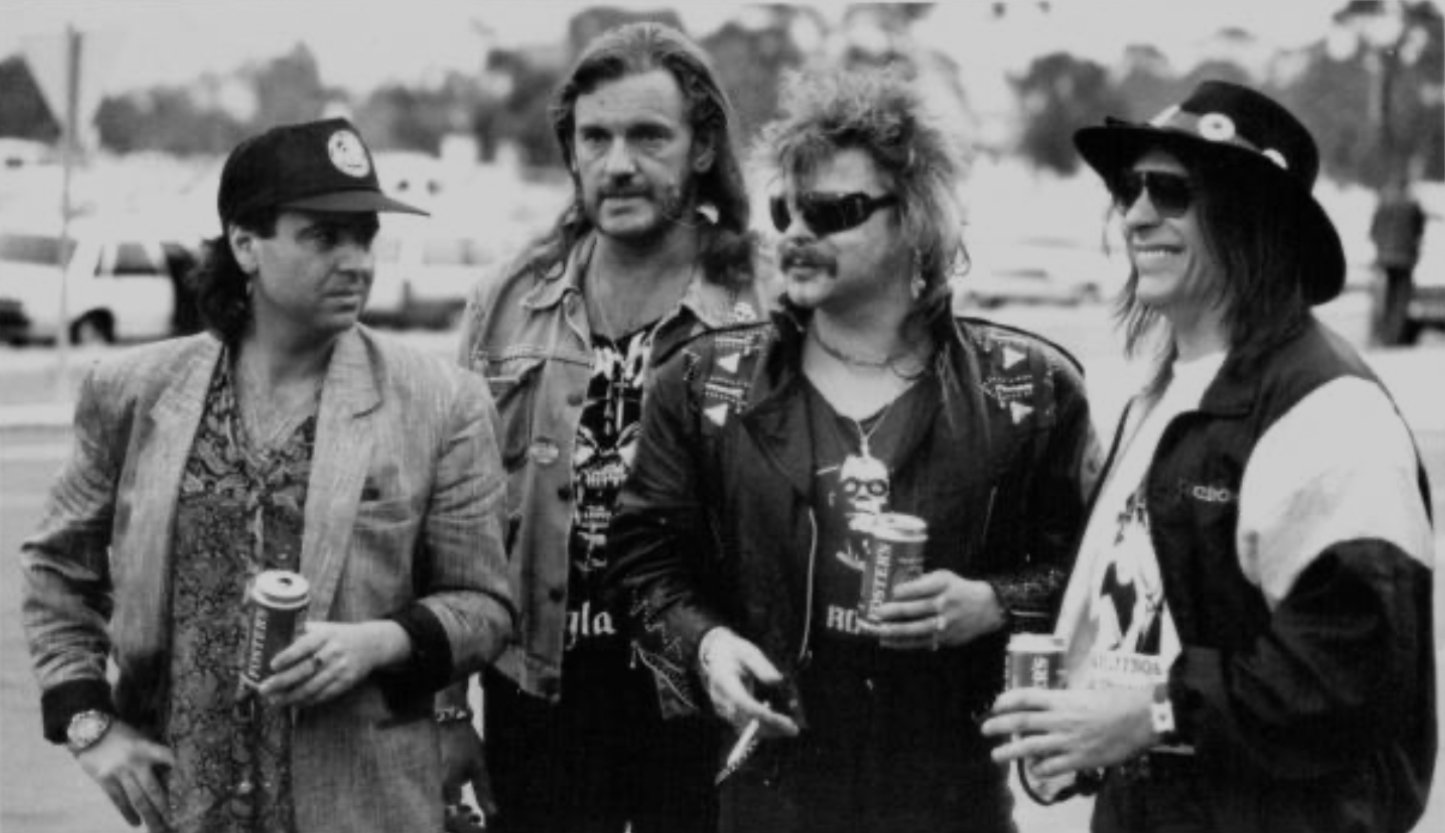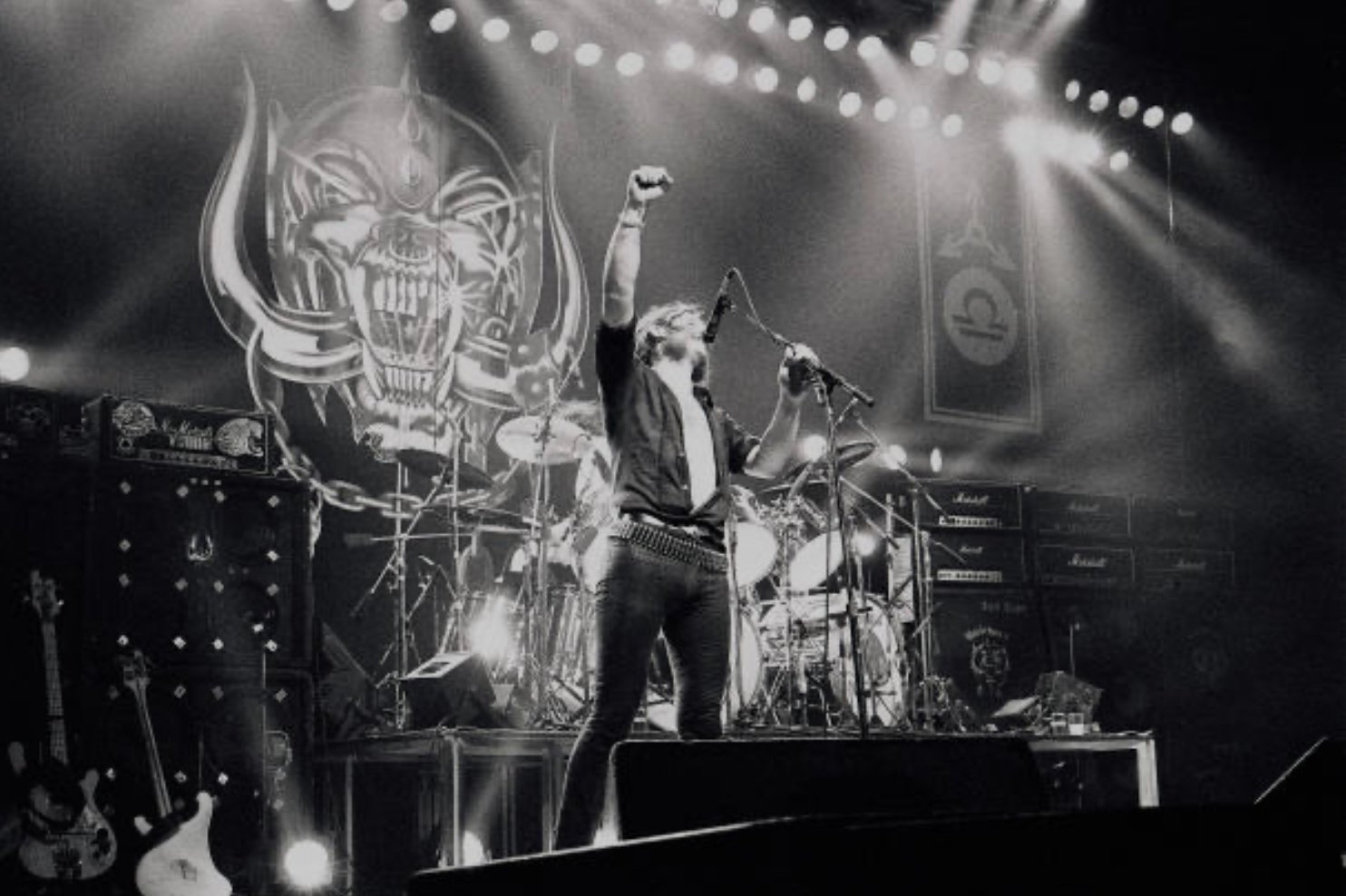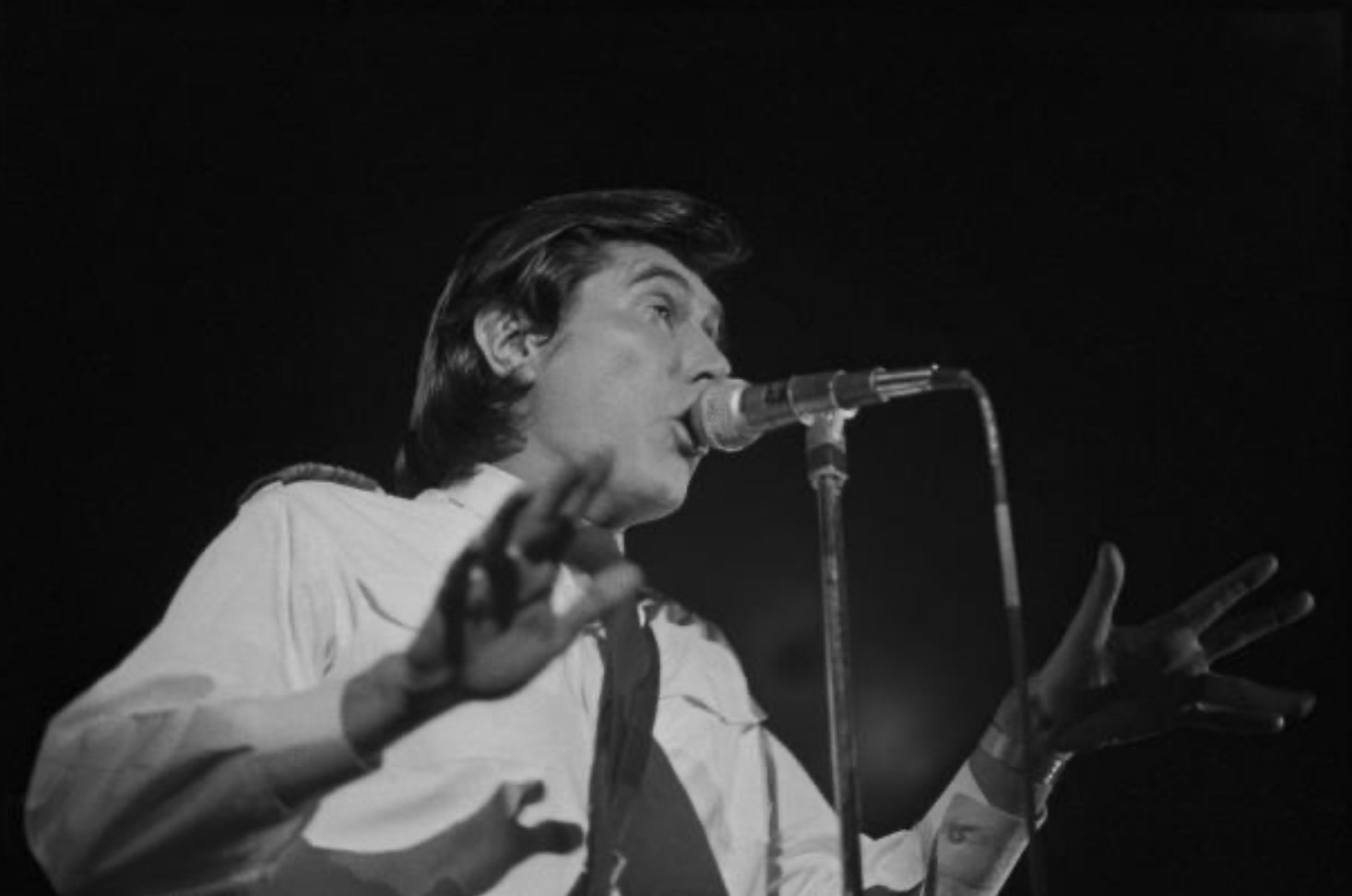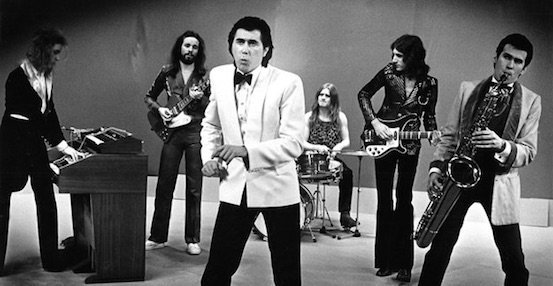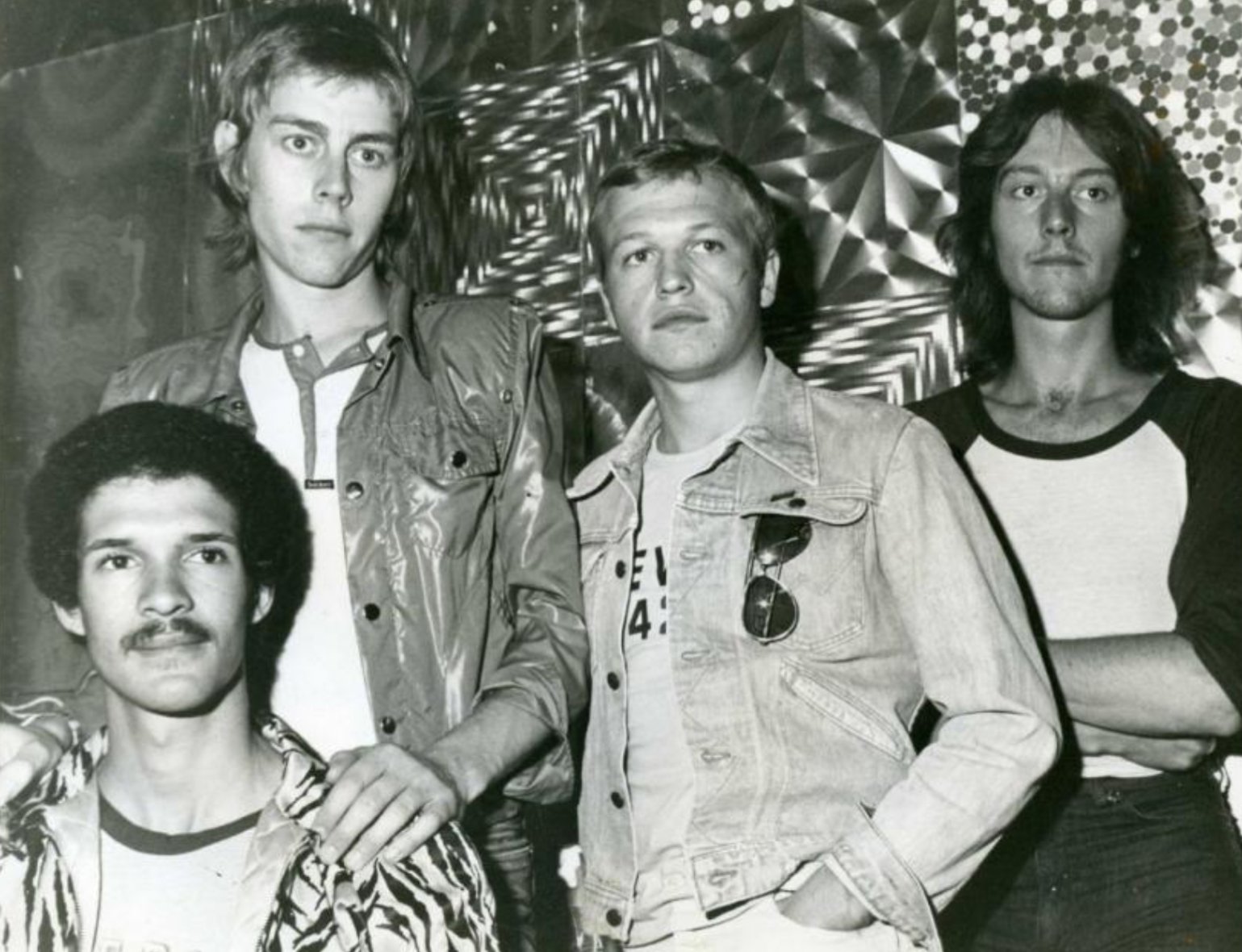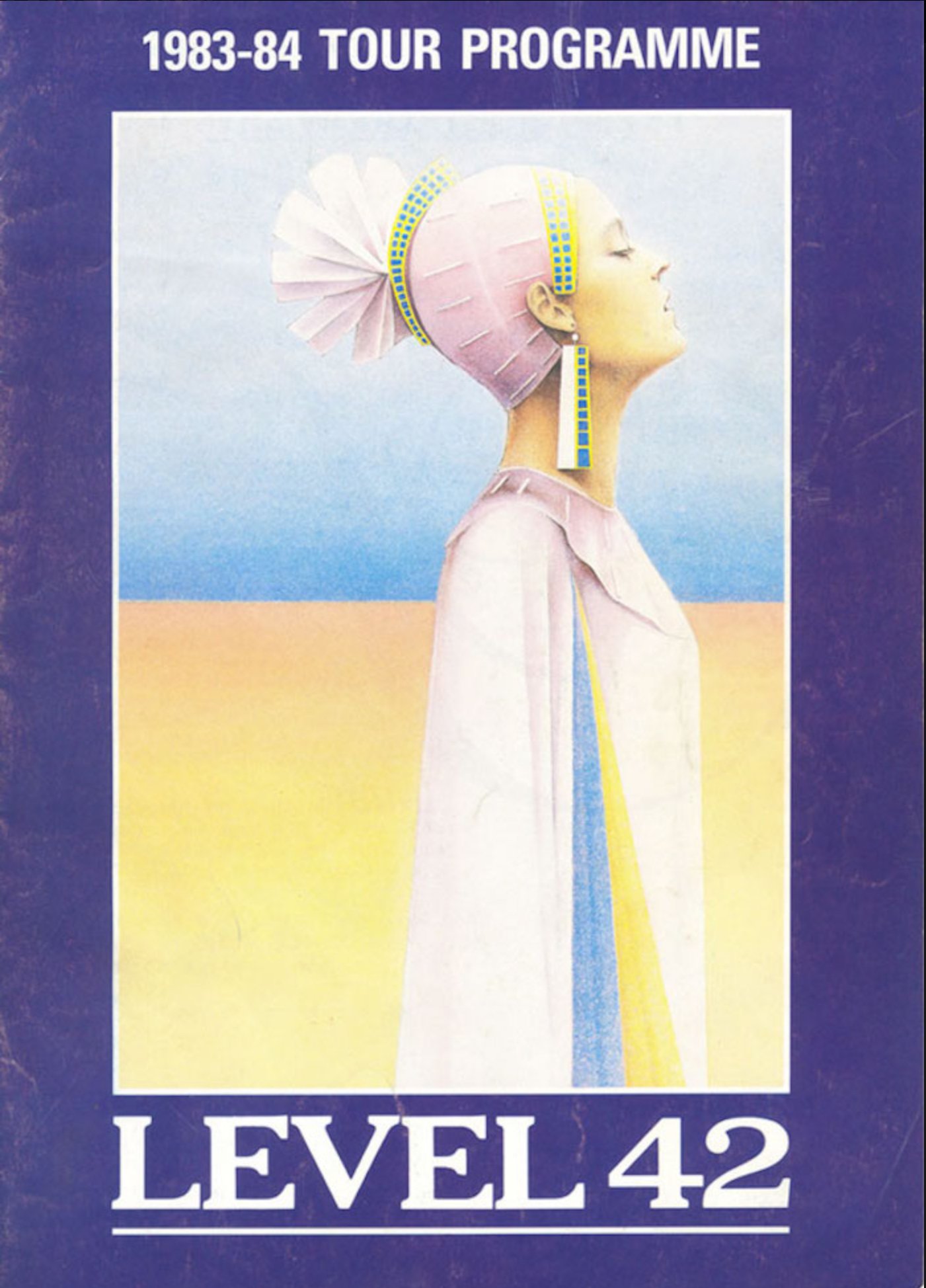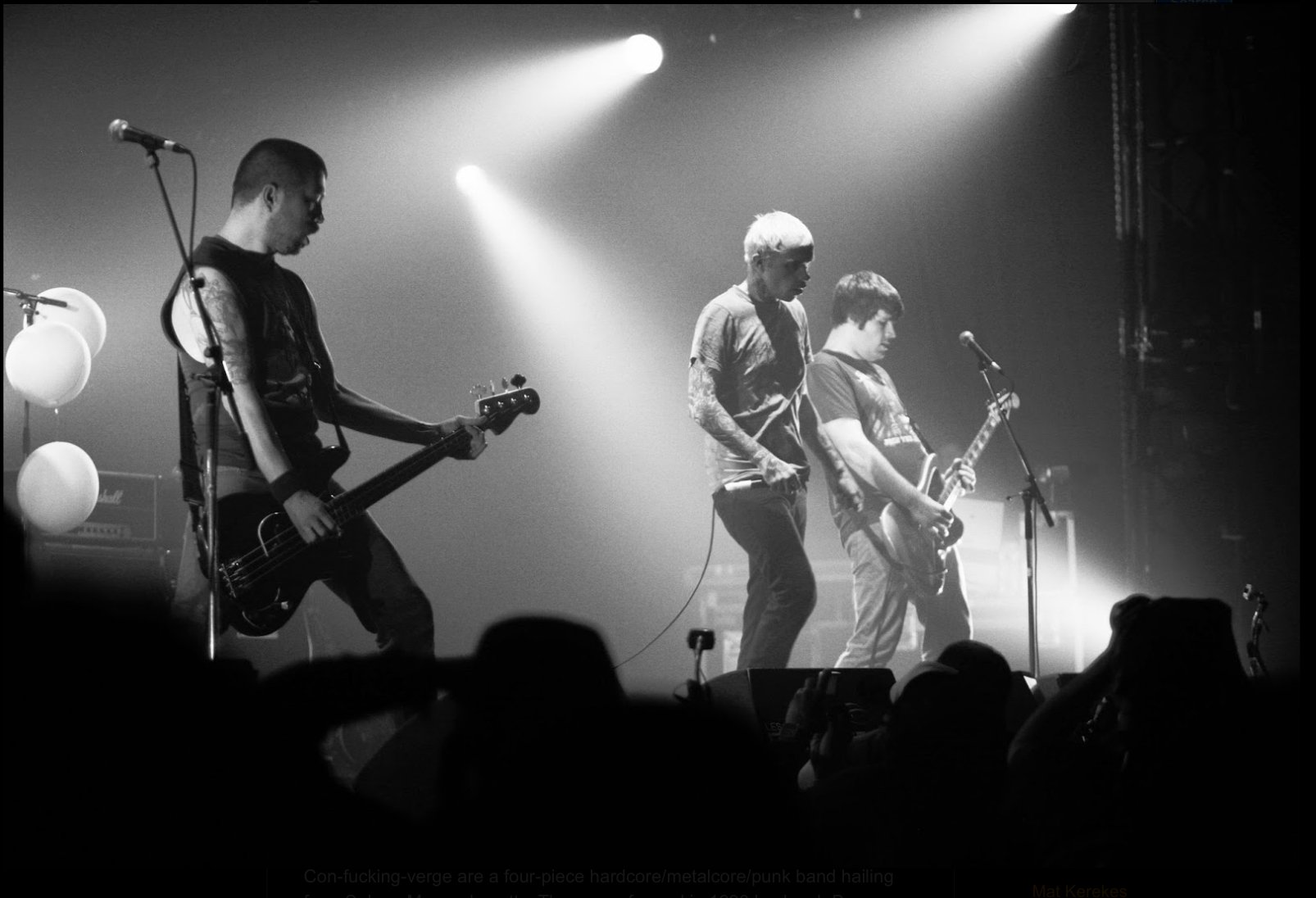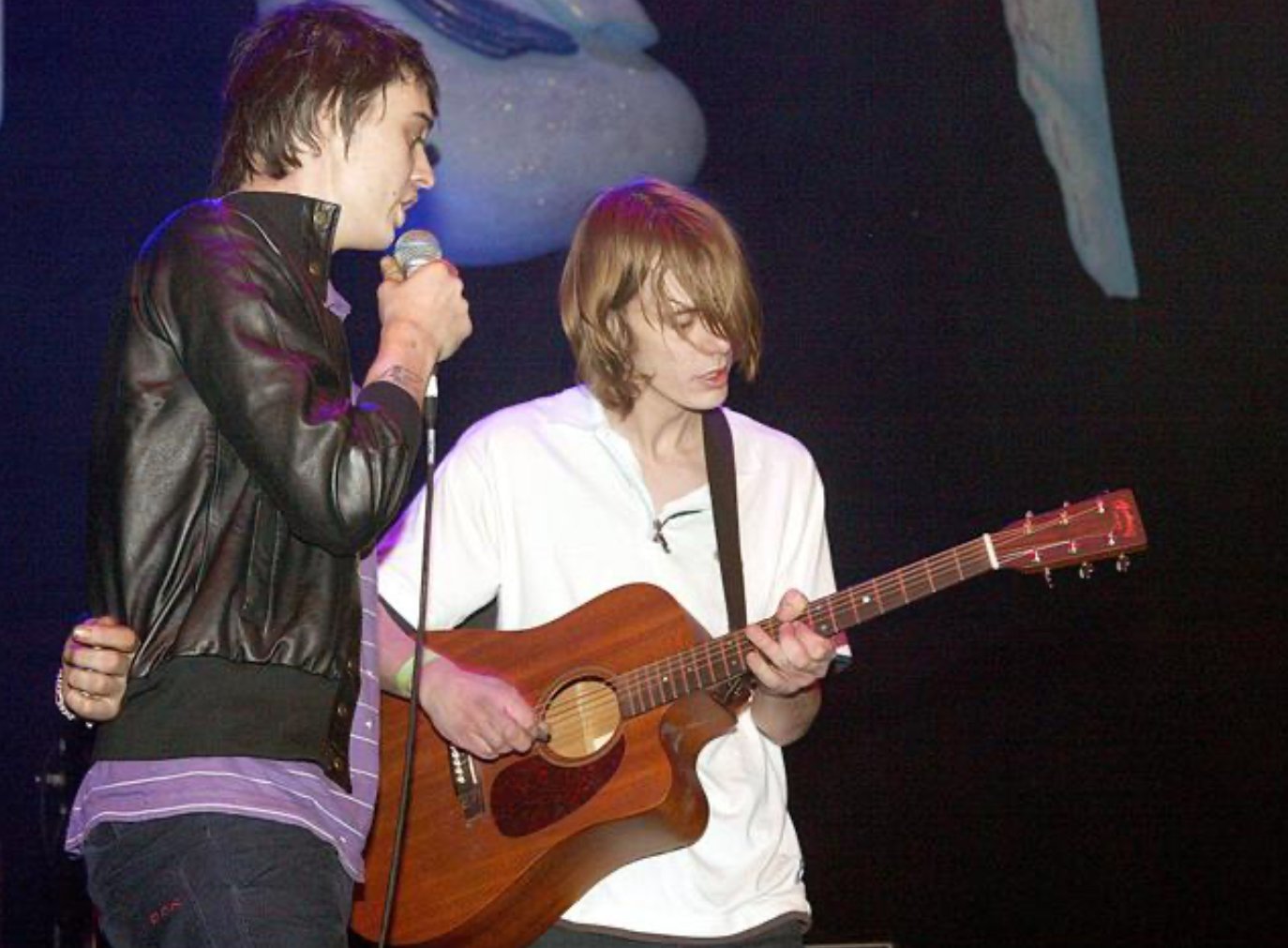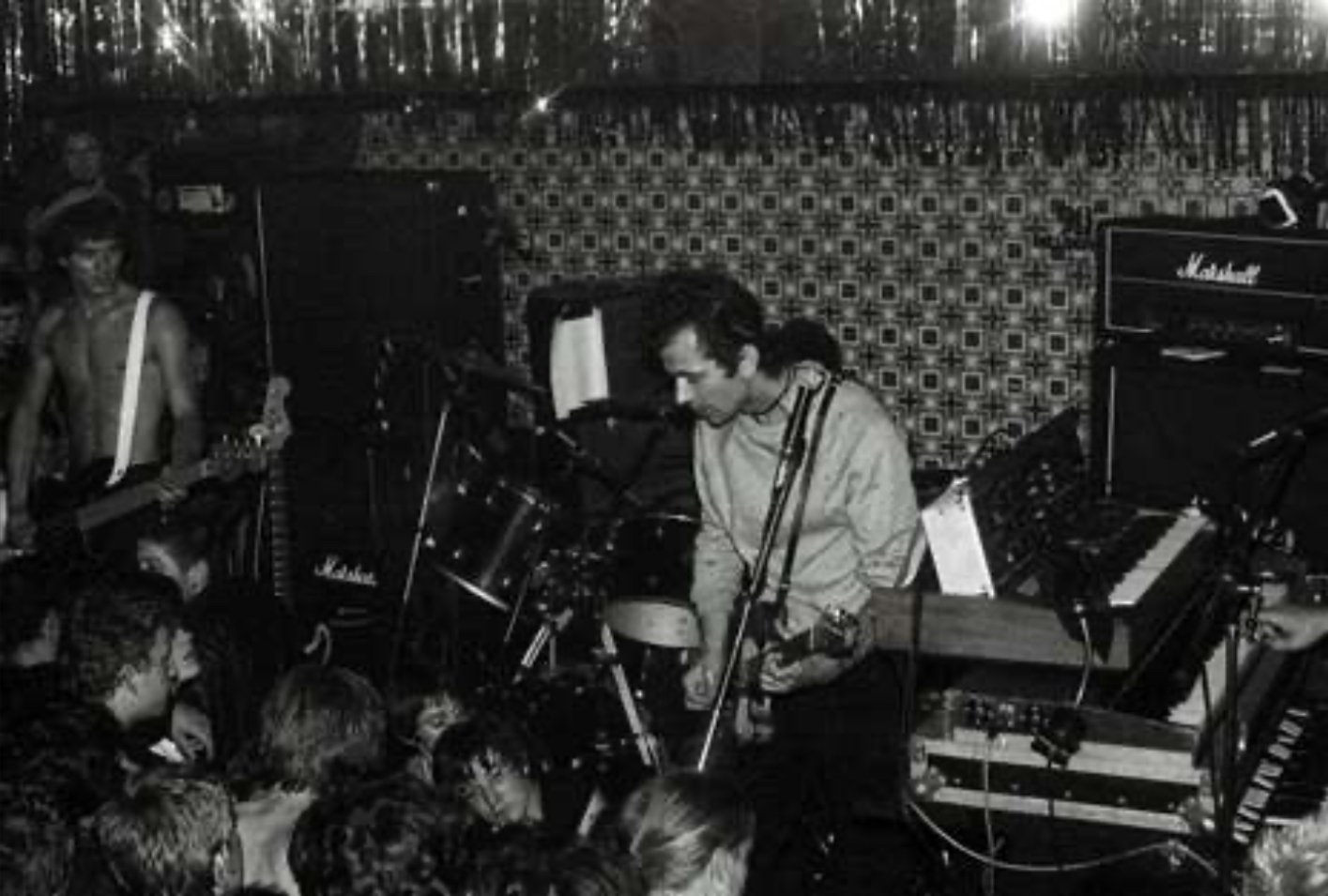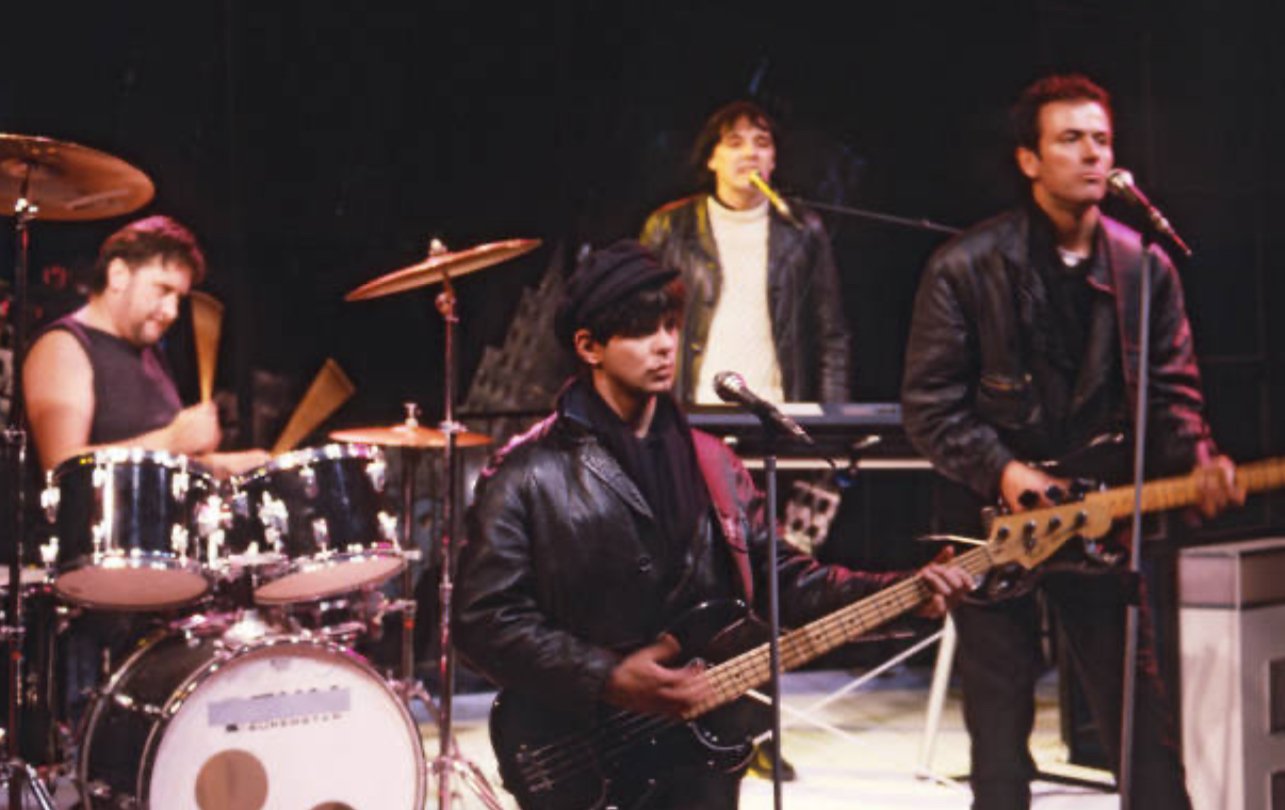Images may be subject to copyright
On this day 24 September 1996, pop boy band East 17 played Cardiff’s International Arena.
East 17 began in 1991 when Tony Mortimer was promised a record deal with London Records after he presented his own material. The deal was granted under the condition that he form a group, which would be in the format that London Records were looking for. Mortimer recruited Brian Harvey, John Hendy, and Terry Coldwell.[citation needed]
The group was named East 17 after the postcode of their hometown, Walthamstow.
The group has released 18 top-20 singles and four top-10 albums and was one of the UK's most popular boy bands during the early- to mid-1990s, aided by strong tabloid interest in their 'bad boy' image, compared to the clean-cut style of rivals Take That. Their style blended pop and hip hop in songs such as "House of Love" and "Let It Rain".
East 17 has sold over 18 million albums worldwide and according to the British Phonographic Industry (BPI), the group has been certified with sales of 1.8 million albums and 2.6 million singles in the UK. Their biggest hit, "Stay Another Day", was the UK Christmas number one in 1994.
The group was usually seen as a grittier, more political and hip hop or rap-aligned ensemble than rival boy band Take That, as noted by Guy Adams of The Independent:
They shaved their heads, and had tattoos, and were a lot, lot cooler than the nancy boys of Take That. In the great five-year battle that dominated British pop, East 17 were also on the winning side. Their music was sharper and more streetwise. It was infused with hip hop and sold by the bucketload: 18 million records across Europe, compared with Take That's paltry 17 million.
— Guy Adams


